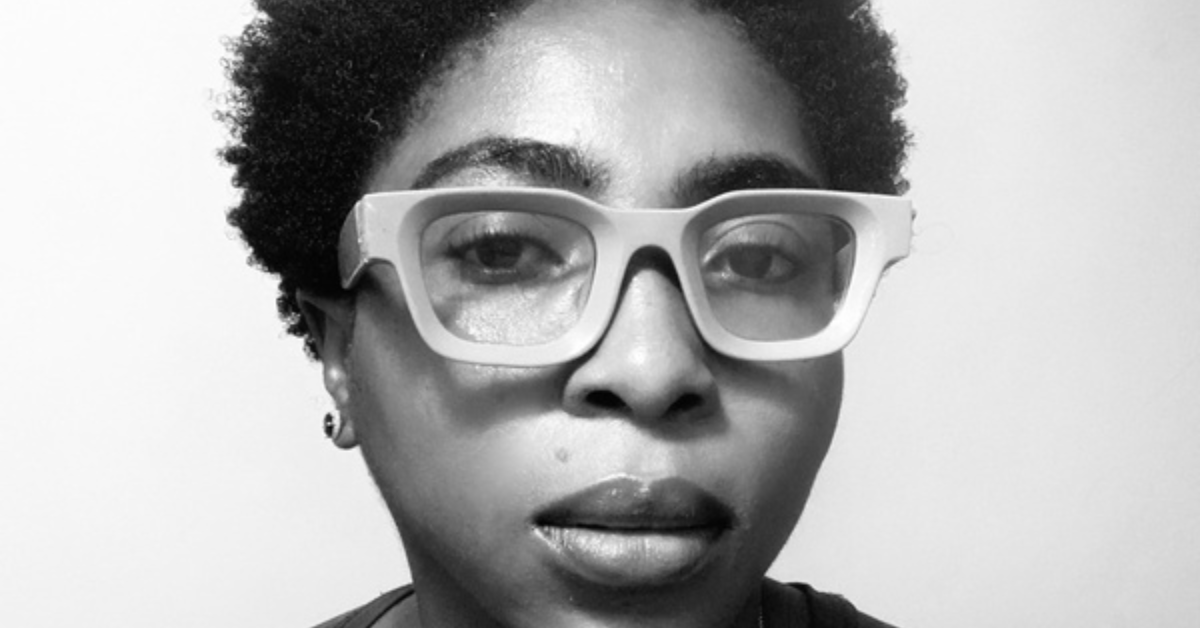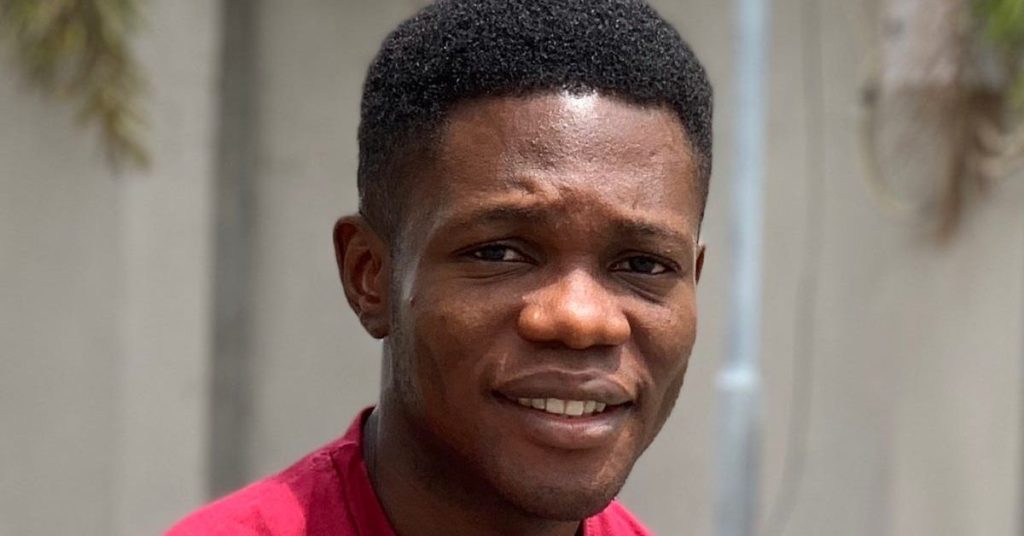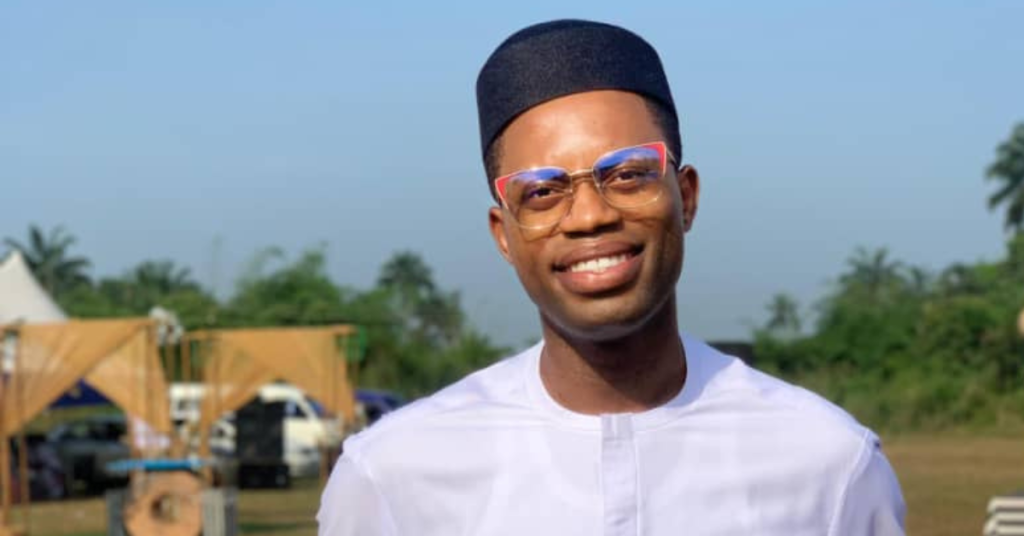Jakky Bankong-Obi writes, edits, curates, and mentors with an energy that feels both grounded and daring. From her roots in Cross River to her role as co-editor at Icefloe Press and Poetry Editor at Pepper Coast Literary, she has built a reputation for sharp editorial vision and generous support for emerging voices.
Her chapbook What Still Yields — chosen for the 2023 New-Generation African Poets series by Kwame Dawes and Chris Abani — reveals the same qualities that define her editing: clarity, care, and a fierce attention to the world around her.
In this interview with Akpata Magazine’s Oluwatomisin Olorunfemi, Jakky talks about the journey that shaped her writing and editing, the power of poetry as a home for memory and nature, and what it takes to sustain a career at the crossroads of creativity and curation.
Oluwatomisin: Please tell us about your journey into poetry and what first drew you in?
Jakky: I wasn’t really familiar with poetry for most of my adult life. I had read a few poems here and there but it wasn’t really a genre I was familiar with, though I’ve always been an avid reader. But when I was pregnant with my son years back, a friend sent me a quote by Rumi which I really loved. It inspired me to explore more of his poetry.
Around that time, I used to post pictures of nature and short notes under each picture. One day, my brother reached out and told me what I was doing was poetry. He also sent me a few email addresses and told me to submit my poems to them.
I did as he suggested and that same day, I got my first acceptance from a UK magazine. I remember seeing it at work and celebrating with my colleagues at the office. It was so exciting to hear my poem was going to be published. That was the beginning of my journey into poetry.
Oluwatomisin: Getting acceptance on the same day you submitted your poem is really interesting. I have read Rumi, I can’t remember when but I did have a Rumi phase too. Also, I have read a few of your poems and I must say they are different from the style that inspired you. So, how did you find your voice as a poet?
Jakky: I feel like we all have our unique ways of expressing ourselves and that’s our voice. When writers ask me how they can find their voice, I say your voice is already yours. You already speak in a certain way, think a certain way and write in a certain way. The only difference is what you say today will be a different subject matter from what Rumi or someone else from another era said. You just say what you want to say in the way that it comes to you.
Also, the tone or syntax may differ based on subject matter or emotion. In my opinion, it’s best not to worry too much about “finding your voice” but improving your craft generally.
Oluwatomisin: I guess things must have been different as an editor. So, how did you find yourself in editing?
Jakky: My first professional job was in a UK-Nigeria-based publishing firm that published journals, papers and other academic writings. I wasn’t in the creative department though. I started out at the customer relations and sales department and my job mostly involved writing emails for email marketing. One day, the editor came to my desk and gave me a document to rewrite and after I did, he was impressed. He said he’d wanted to test me because he had seen a few of the emails I had been writing and felt I had a thing for the creative side. He put me on probation as a junior associate editor and after a few months, I officially became an associate editor. That was my first encounter with editing.
After that, I managed a journal for development firm/NGO. Most of it was really public sector focused analysis but it gave me very useful experience for the publishing process. A lot of my work is around Communications, Media and HR/Admin which really comes in handy.
Then when I started being creative with poems, Adebayo Agarau recommended me to guest edit the Mother/Daughter/Voice anthology for Icefloe and when I did, they offered me the role of a co-editor. That’s how I got into editing poetry.
Oluwatomisin: How do your roles as editor and poet influence each other?
Jakky: (laughs) I like this question a lot. I feel like they do. Getting to read amazing poetry always sharpens your writing so that’s a great advantage. But it can put some kind of pressure on you as well because here you are rejecting all these wonderful poems and the voice in your head can run away with the idea that now you have to be really, really perfect yourself. It’s something I’ve had to work out but I honestly won’t trade the experience. I love editing and I would say editing poetry has matured my own poetry.
Oluwatomisin: How do you find a balance—I mean as a writer, editor and speaker?
Jakky: I think the key might be that I enjoy everything I do. I love to read and I feel my writing is like a response to my reading. I want to read, I want to write, I want to speak about my craft, interact with other writers and read my poetry to audiences. Being a writer is like my secret and most sacred childhood dream coming true so I have to find the time I have to find time.
Maturing has also taught me to no longer put unnecessary pressure on myself to do things I can’t do or to overstretch. Earlier this year, I had two events booked for one day without knowing it. The timing didn’t clash so I kind of missed it. Luckily, one was in person and the other was virtual and I’ve now gotten better at managing my calendar.
Scheduling and prioritizing really do matter, and one has to ensure these things do not mix. And for me, being a parent comes first then other things follow with the rule that I don’t say yes to things I can’t do.
Oluwatomisin: You said you loved reading at an early age and I’m very curious to see if it affected your academics and what you studied in school; most times, you ask creatives what they studied and it’s entirely different from what they do. So, what did you study?
Jakky: (laughs) I was a science student in secondary school. I have never been in a literature class my whole life but I have always loved reading books. My mother was a literature teacher and my dad, a journalist. So, we always had books in my house. I read Things Fall Apart and Arrow of God at nine or ten, even if I did not understand all of it. I was that student who would skip classes to go find a quiet spot to read.
I started university with remedial studies and then got in to study biochemistry with JAMB but dropped out of that after three years. I didn’t tell anyone at home I had dropped so had to buy GCE and UTME forms with my pocket money as well as books to switch on my own to the social sciences.
I opted for International Relations and Philosophy. I got two different admission offers from two institutions—one private university and OAU. The private university offered me Philosophy while OAU offered me International Relations. I eventually settled for OAU and the rest, as they say, is history.
Oluwatomisin: What’s one poetic cliché you’re tired of seeing in submissions?
Jakky: Actually, none. To me, a good poem is a good poem; it’s just how you write it. The subject matter doesn’t have to be new, it depends on how you do it.
I believe we’re all saying the same thing and history repeats with a slight twist so there’s really nothing new under the sun. It is that little twist and unique eye view to life that bleeds out of the poems we write. I really don’t find anything cliche as long as it invites me in. Poets and writers always find ways to do that and I’m ever curious to be led into whatever world is shown in poems.
Oluwatomisin: What do you look for in a poem before you say “yes”?
Jakky: For me, it’s always the music, structure, line breaks, invention, language, internal logic etc. How the writer is able to carry us through to a resolution. I want a poem that grabs and speaks to me.
Oluwatomisin: Have you ever regretted publishing or rejecting a poem?
Jakky: I have not regretted saying yes to a poem but I have regretted rejecting poems. I remember thinking about a poem I had rejected all night that I couldn’t sleep. The next day, I told the team we shouldn’t have rejected it and they agreed after deliberations. We sent an email to the poet to say we would like to publish the poem. We eventually published that poem and it went on to win awards.
Oluwatomisin: The ones you regret not choosing, what makes you reconsider? What makes them stand out?
Jakky: It hasn’t happened often but there’s always something about the poems that haunt. They just refuse to let go so I give them another reading. Perhaps the language, its inventiveness and the feelings evoked.
Oluwatomisin: Your writing explores nature and cycles of life. What draws you to this element? What do they allow you to express that others might not?
Jakky: I write what I feel strongly about and I have always felt strongly for nature. When I was a child, I loved walking in the field. I was very obsessed with grasshoppers and wanted to spend all day watching them. I also loved to climb trees and chase lizards. I come from the rainforest region of Cross River state and this shaped me. I love flowers as well, though I can’t say I’m much of a farmer.
The thing is, nature is life. I’ve discovered that in writing, we tend to speak of “nature” as some kind abstract. A theme to engage but it’s literally just life. It’s us, we are in nature and a part of nature and follow all her cycles from birth to life. We’re here today. And tomorrow, we’re not. And sometimes, other things grow from the things that were previously here and so on. It is simply this mystery that enamours and occupies me.
Oluwatomisin: You have a beautiful way of presenting this, especially with the cycle of death, rebirth and beauty that happens in between; it’s a poignant concept. Let’s talk about what life looks like right now, especially with AI. Do you think AI would write a poem you would publish?
Jakky: Right now, I would say no except I don’t catch it, we have a No-AI policy. Personally, I’m not in support of using AI because I feel like language is a unique aspect of life which the machine does not generate. Humans have simply fed technology language and now we are just going to cede that it? That feels like plagiarism pro-max and now we are beginning to be fed the idea that certain aspects of language writing are uniquely AI?
It’s honestly boggy to me but history has proven that society changes so I can’t say what the future holds seeing as we move with technology. When computers first came into existence, a lot of people did not embrace it due to personal beliefs but look where we are now. Perhaps, my issue right now with using AI is that it seems unfair to other poets who never use it in their writing. Poets who grind through the psychic rigours of language to arrive at art should not have to compete with those who feed a prompt to generate pieces in seconds. Maybe it’s better if people who use it indicated they used AI instead of saying they didn’t.
Oluwatomisin: We have now come to the end of the interview. Thank you so much for giving us the audience. We appreciate you.
Jakky: Thank you so much and it’s been wonderful talking to you.
Jakky Bankong-Obi is from Kakwe-Beebo, a village on the corridors of the Cross River Rainforest in southeastern Nigeria. Her chapbook What Still Yields was chosen by Kwame Dawes and Chris Abani for publication in the New-Generation African Poets box sets, by Akashic Books and APBF (Spring/Summer 2022). Jakky is a Media Consultant and Co-Editor at Ice Floe Press, Poetry Editor at the Liberian magazine, Pepper Coast Literary and Co-curator at Poetry Sango-Ota. Her work is forthcoming and in London Grip, The Kalahari Review, Reliquiae Journal, Pipewrench Magazine, Gutter Magazine, The Poetry Review, Pidgeonholes and Memento: An Anthology of Contemporary Nigerian Poetry etc. Her work considers the intersection of ecology, myth, and otherworldly naturess as prism for identity and being. Jakky is on twitter as @jakkybeefive.
Oluwatomisin Olorunfemi is a food scientist by day, and a budding poet, spoken word artist and film and culture writer every other day, with her work featured on What Kept Me Up. She is currently interning with UNIBEN’s Akpata Magazine, exploring the intersections of literature, culture, and storytelling.
Because great writing shouldn’t be hard to find. Subscribe to get the best reads in your inbox.




